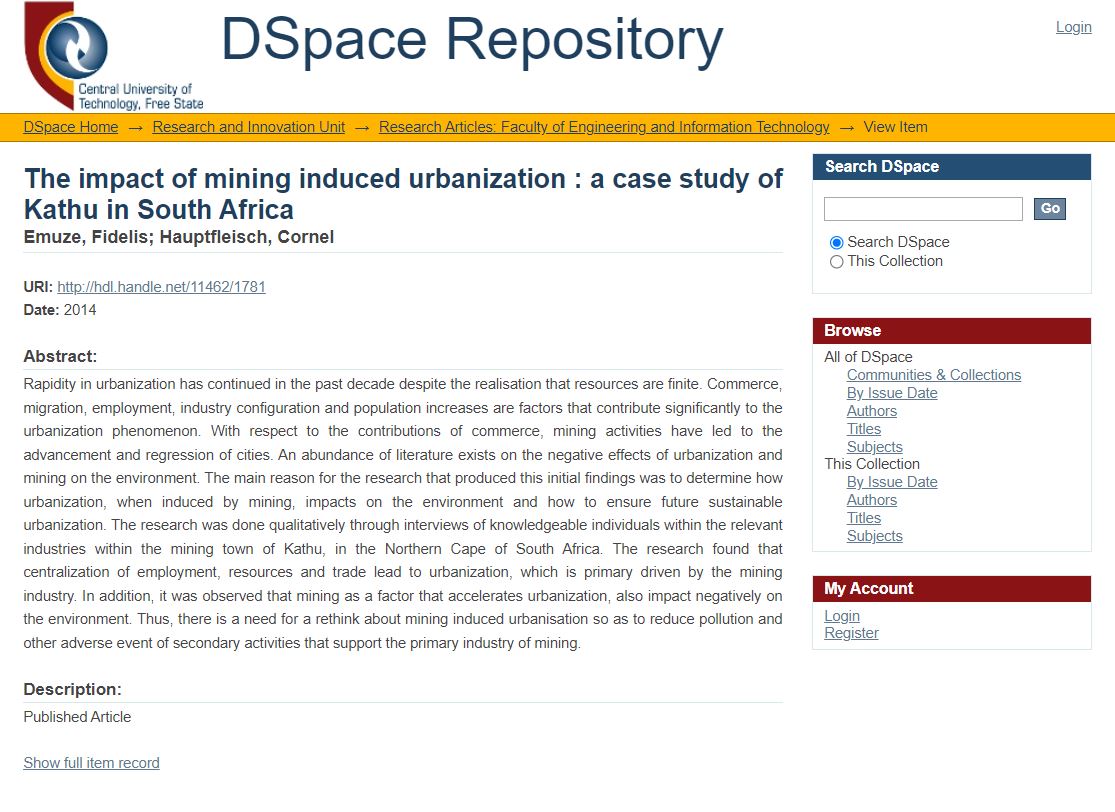The impact of mining induced urbanisation
A case study of Kathu in South Africa

01 January 2014
Central University of Technology, Free State
English
Research report
Municipal Capability & Partnership Programme
Africa
Rapid urbanisation has continued in the past decade despite the realisation that resources are finite. Commerce, migration, employment, industry configuration and population increases are factors that contribute significantly to the urbanisation phenomenon. With respect to the contributions of commerce, mining activities have led to the advancement and regression of cities. An abundance of literature exists on the negative effects of urbanisation and mining on the environment.
The main reason for the research that produced these initial findings was to determine how urbanisation, when induced by mining, impacts on the environment and how to ensure future sustainable urbanisation. The research was done qualitatively through interviews of knowledgeable individuals within the relevant industries within the mining town of Kathu, in the Northern Cape of South Africa.
The research found that centralisation of employment, resources and trade lead to urbanisation, which is primary driven by the mining industry. In addition, it was observed that mining as a factor that accelerates urbanisation, also impact negatively on the environment. Thus, there is a need for a rethink about mining-induced urbanisation so as to reduce pollution and other adverse event of secondary activities that support the primary industry of mining.
This resource is part of the Mining Towns Collection kindly sponsored by the Municipal Capability and Partnership Programme. Abstract based on source.


Comments